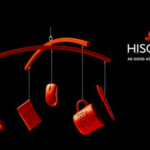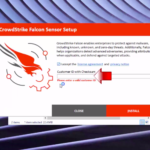After a car crash, injury victims face the daunting task of pursuing compensation from insurance companies. Hiring legal counsel maximizes claim value, but not everyone can afford hefty attorney fees. Trying to settle without professional help is risky, but possible with the right approach. This guide covers key steps for DIY car accident claim resolution.
Should You Handle a Car Accident Claim Yourself?
Settling without a lawyer’s expertise takes substantial effort and research. Key downsides exist:
- Insurers exploit novice negotiators and lowball settlements. Lawyers have leverage through litigation experience.
- Complex injury laws and claim valuation require legal sophistication most lack. Miscalculations leave money on the table.
- Investigating fault and proving damages demand extensive time crash victims should spend healing.
- Emotional trauma from wrecks impairs judgment needed for dealing with aggressive insurers. Detachment helps maximize payouts.
- Insurers have teams of lawyers. Without your own, you start at a major disadvantage.
Still, with lots of diligence, some minor injury claims potentially get fairly settled without counsel. Know the challenges and weigh them against attorney fees saved.
Gather Evidence From the Crash Scene
Evidence establishes fault and strengthens the negotiating position. Steps to take include:
- Photograph damage to all vehicles, skid marks, debris fields, guardrails, and other relevant accident scene evidence. Thorough visual documentation carries weight.
- Get contact information for all parties involved, including witnesses who saw what happened. Police reports also help verify details.
- Measure critical distances, like the length of skid marks prior to impact. This data proves speeds and demonstrates drivers had room to take evasive actions.
- Note weather and lighting conditions in writing, as they may have contributed to the collision.
- Draw a diagram of how the accident happened while facts are fresh. Details fade surprisingly fast.
- Save medical documentation like ambulance reports and ER charts substantiating injuries right after the crash.
Early evidence gathering gives negotiating credibility against insurers inclined to minimize payouts.
Try Settling Without Lawyers Initially
Pursuing an early resolution directly with insurers saves legal costs if both sides can agree on fair claim valuation. To facilitate this:
- Remain civil and cooperative with insurance representatives. Avoid an adversarial tone that may influence them against you.
- Have a clear demand number justified by documentation of all damages, from medical bills to missed wages. Leave no category unaccounted for.
- Highlight facts of the case showing the other driver’s clear negligence caused the collision. Couch it as an obvious liability situation.
- Set a short deadline for responding to the demand, politely urging quick consideration. Delays favor the insurer.
- If the adjuster counters with a low offer, politely decline it as inadequate based on case specifics. Reiterate willingness to reach a reasonable compromise.
With very minor injuries from clear-cut, low-speed accidents, fast direct settlement with the insurer may succeed, bypassing legal expenses. But it requires significant claim valuation knowledge most lack without guidance.
Consult Experts to Strengthen Your Position
If insurers balk at settling without attorneys involved, experts can boost negotating leverage. Consider retaining:
- Accident reconstructionists – Their analysis of physical evidence determines speeds, preventability factors, and ultimate collision causes. Expert fault conclusions carry weight and justify higher damages.
- Injury doctors – Expert physicians can evaluate long-term prognosis and project full lifetime treatment costs if disabilities linger. High future expenses compel larger settlements.
- Vocational experts – For serious injuries inhibiting work capacity, specialists can calculate reductions in earning potential. This translates to higher financial losses for insurers to cover.
While expert fees add costs, their reports often force multiply larger insurance payouts, providing a strong return on investment. Insurers have less room to minimize damages with unassailable expert findings.
Negotiate Firmly Using Lawyer Tactics
Approach settlement talks strategically, utilizing proven attorney tactics:
- Cite relevant case law – Research previous court verdicts and settlements in comparable injury cases. Using legal precedents to support your asked payout makes it harder for insurers to resist.
- Outline your strongest arguments – Create a settlement brochure highlighting key liability facts, injury details, impact on life quality, expert findings, and case law favoring your demand. Make it difficult to say no.
- Use persuasively high starting demands – Anchor initial settlement requests well above the amount you actually expect to recover. This frames lower subsequent counteroffers from insurers as “wins” for them, facilitating bigger compromises.
- Sweeten with limited-time offers – Dangle settlement incentives like agreeing to lower demands for 14 days only. This pressures insurers to act before savings evaporate.
- Remain firm on minimum thresholds – Refuse to consider counteroffers under a pre-set floor amount reasonable given case realities. Don’t get pressured into subsistence settlements.
With preparation and composure, injury victims can sometimes negotiate claims themselves to satisfactory outcomes without the expense of lawyers. But it requires education and significant effort.
Common Insurance Company Negotiation Tactics
Insurers employ their own tricks aimed at minimizing payouts. Watch for:
- Quick initial offers – Early lowball settlement attempts capitalize on victims’ vulnerabilities immediately after accidents before they fully know claim values. Decline these.
- Delaying negotiations – Stalling works in insurers’ favor as time elapses, memories fade, and victims become more desperate for closure. Don’t let cases languish.
- Misdirection and confusion – Purposefully complicating issues wears victims down. Stay focused on key liability and damages evidence.
- Minimizing injuries – Downplaying victims’ suffering and difficulties pressures acceptance of smaller settlements. Politely push back.
- Leveraging authority – Adjusters portray themselves as the singular decision-makers whom victims must satisfy. Remember they answer to supervisors, so don’t fear unreasonable reprisal for insisting on fair treatment.
Staying attuned to unscrupulous negotiation tactics helps counter them more effectively without professional legal support. But the deck remains stacked against injury victims handling claims themselves.
When to Lawyer Up on Car Accident Claims
Certain factors indicate a lawyer’s expertise is indispensable for maximum claim value:
- You suffered long-term disabilities altering life permanently.
- Medical treatment costs already exceed $10,000 with more projected.
- Injuries forced you to miss substantial work, creating financial hardship.
- The at-fault driver had obvious criminal negligence like DUI. Their insurance will resist big payouts fiercely.
- Multiple vehicles or parties were involved, complicating claim liability.
- The at-fault driver was uninsured, requiring action against your own insurer.
- Insurers already denied responsibility or offered you an insultingly low settlement.
- You don’t have time for lengthy research during recovery.
If any of the above apply, hire counsel without hesitation. While lawyers take 30-40% of settlements, they also typically increase those settlements by over 300% through savvy negotiation based on legal experience most lack. The boost in compensation usually offsets the fees.
Key Things Lawyers Do for Accident Claims
To understand the specific value lawyers add, consider core actions they take:
- Conduct in-depth investigations immediately after crashes when evidence remains fresh
- Recreate accidents convincingly with engineers and physics models
- Locate all witnesses and obtain the most persuasive testimonials
- Calculate lifelong impact on earnings thanks to long-term insight
- Estimate full projected healthcare costs using medical connections
- Determine all potential defendants and legal avenues for accountability
- Negotiate skillfully with insurers based on exhaustive comparable case research
- Litigate aggressively through the court system when warranted
- Absorb all the logistical burden so clients can rest and recover
Securing fair compensation without professional legal help requires pursuing all these same steps effectively yourself. It’s a tall order for injured victims already dealing with disruption and trauma. Lawyers have the detachment, experience, and resources to maximize claims through exhaustive expertise accident victims typically lack.
Alternatives to Hiring a Lawyer
If proceeding without an attorney, research these options to get assistance:
- Mediation – Hiring a neutral third-party mediator to facilitate settlement discussions may help resolve cases fairly. Mediators analyze cases professionally and propose reasonable compromises both sides can accept.
- Legal clinics – Some law schools and non-profit legal aid organizations operate clinics using student help to handle injury claims under attorney supervision. Careful case screening provides affordable representation to qualified applicants.
- DIY legal resources – Books, websites, online videos, and self-help legal guides can educate on the claims process, letting you avoid paying hundreds of dollars an hour for an attorney’s time. Just commit ample study hours.
Getting quality legal guidance without formal representation remains challenging, but exploring alternatives may offer viable strategies in certain situations. Know the resources available.
Frequently Asked Questions
- What if the insurer’s final offer seems too low? Can I still pursue more money without an attorney?
You can file a personal injury lawsuit yourself through your local court system without a lawyer’s assistance. But court rules, procedures, evidence laws, and litigation practices all require extensive expertise. Handling your own case is extremely difficult.
- What information should I request from the insurance company when trying to settle myself?
You’re entitled to view the claims adjuster’s evaluation of policy limits, damage assessments, injury details, liability determination, negotiation range, prior settlement amounts, and expert reports. Accessing the insurer’s own case file arms you with data to support higher demands.
- Can I change my mind and hire a lawyer later if trying to settle myself doesn’t work?
Yes, you can retain counsel at any time, even after negotiations reach advanced stages. An attorney can still often improve settlements substantially through aggressive tactics and litigation leverage. Let insurers know you’ve lawyered up!
- If I accept a settlement offer myself, can I go back and ask for more money later on if injuries worsen?
No, settlements are final and close the book on seeking more compensation tied to that same accident under the claim. Make sure you fully understand the lifelong implications of injuries and losses before signing any insurer-offered deal yourself.
- Is there a standard formula for calculating car accident settlement amounts myself?
No set formula exists; every case has unique details. But commonly accounted costs include medical bills x 3, lost earnings x 3, loss of life quality x 3, and property damages x 3. This provides very general multipliers to estimate starting negotiation points. An attorney can advise on valuations.
Final Thoughts
Settling minor car accident injury claims directly without an attorney’s help holds appeal for avoiding legal fees. But even seemingly straightforward cases require extensive knowledge and skills. Conduct diligent evidence gathering and research. Seek objective expert input. Approach negotiations strategically. Know when cases become too complex for self-representation. Understand insurer tactics. Maximize alternatives like mediation clinics for affordable assistance. And above all, recognize that experienced lawyers can often add far more value than they charge in fees through adept legal handling from investigation through trial.










